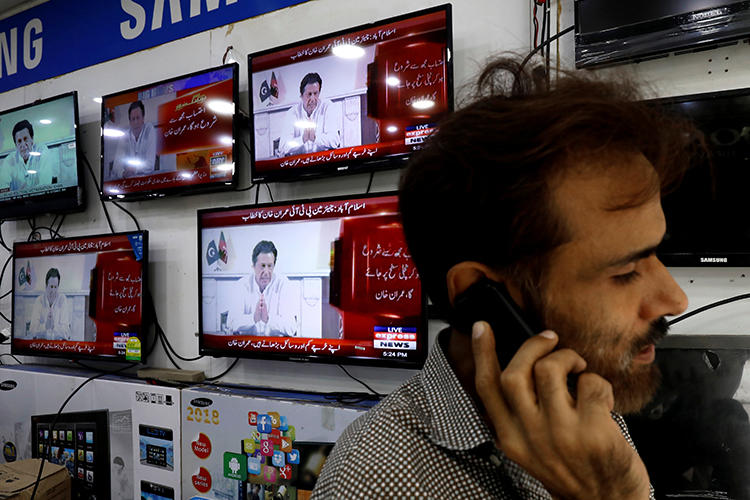On October 27, 2019, the Pakistan Electronic Media Regulatory Authority, the country’s nominally independent media regulator, issued an order posted on its official Twitter account prohibiting news anchors from expressing opinions, stating that anchors hosting news programs “should not appear in talk shows,” and saying that news organizations would be held responsible for “any biased, unfair analysis” aired by their employees.
The regulator has previously fined broadcasters and ordered journalists’ suspensions for violating its orders, according to CPJ reporting.
Following the order’s publication, Hamid Mir, a prominent news anchor, told CPJ via messaging app that he “will resist [the order] because as a journalist it is my right not only to ask questions but also report and express my opinion.” Munizae Jahangir, news anchor at AAJ TV, also condemned the order via messaging app to CPJ, calling it a direct violation of Article 19 of Pakistan’s constitution and “a violation of our fundamental rights as journalists and citizens of Pakistan.”
The Pakistan Electronic Media Editors and News Directors Association, a recently formed professional group, issued a statement seen by CPJ calling for the order to be withdrawn. Azhar Abbas, managing director of GEO News, who chairs the core committee of the association, told CPJ via messaging app that he believed the order was unlawful and exceeded the regulator’s mandate.
Science and Technology Minister Fawad Chaudry, a member of the ruling Pakistan Tehreek-e-Insaf party, tweeted that the order was “uncalled for, illogical and unnecessary.”
On October 28, the regulator released a statement on Twitter saying that the order had been misinterpreted and that “by no means it was to restrict freedom of expression.” The October 28 statement denied that the previous day’s order constituted a ban on journalists appearing on talk shows, but did not address journalists’ concerns about a prohibition on anchor’s abilities to express their opinions.
CPJ emailed the Pakistan Electronic Media Regulatory Authority for comment but did not immediately receive a reply.
